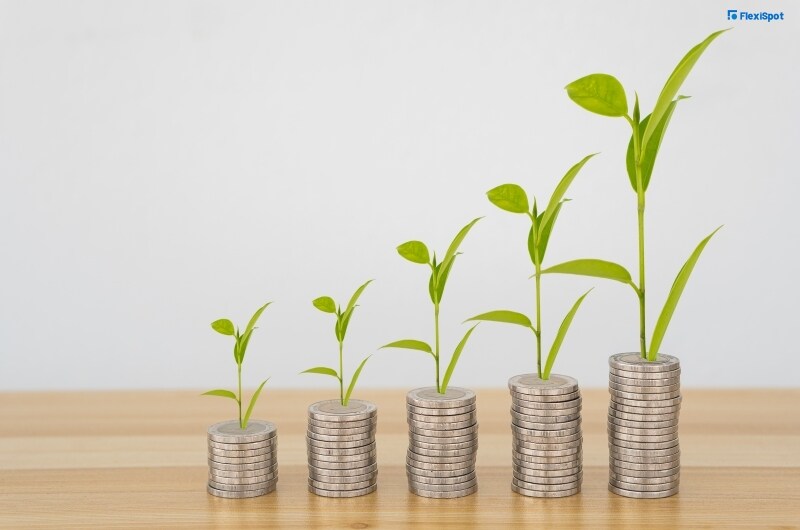In 1970, the first-ever Earth Day in the world was held. This gives us a sense that the world has been calling for climate urgency for decades. Fast forward to 2022, we look at the state of the world now and one of the many questions that still linger: have necessary industry shifts been done? The short answer to that is no but since the first Earth Day, many environmental initiatives have sprung up, including the creation of the U.S. Environmental Protection Agency on December 2 of the same year. The Paris Agreement, a legally binding international treaty on climate change, was signed last December 12, 2015, with the goal of limiting global warming to below 2 degrees Celsius.
Still, it can’t be denied that current data is more alarming than ever. NASA says that the year 2020 was the warmest year on record, tying with 2016. Between 1993 and 2019, Greenland has lost an estimated 279 billion tons of ice every year while Antarctica loses 148 billion tons of ice. In the last century, we’ve seen the global sea-level rise to 8 inches. Extremely high temperatures and intense rainfall events have been recorded in the United States. If we keep doing what we’re doing now without implementing radical changes, 2050 is looking to be very dark.
Consumers can only do so much by making small changes in their day-to-day living. To save Earth, big industries must come together to make revolutionary shifts. A study says that only 100 businesses out of thousands we have worldwide are responsible for 71% of the world’s emissions. This means there is a lot of elbow room for businesses to step up and to start environmental initiatives. We have been seeing companies vowing to do better and going sustainable in recent years. Below are some of the reasons that pushed them to make the first step.

1. When they go green, businesses receive a competitive advantage.
As mentioned, sustainability has become more known worldwide. When a company decides to be environmentally friendly, new customers and new market opportunities enter. Today, since sustainability is still relatively a young concept, there still remain many niche markets that companies could jump into and offer a sustainable option. Given that the company provides a different approach, it will have a competitive advantage over its business competitors that are deemed by consumers as maintaining traditional, backward, and environmentally destructive practices.
The graph is positive that there will be a high chance of growth that sustainable companies would benefit from in the future. More and more millennials and Generation Z consumers are now more concerned with their carbon footprint compared to any other generation in human history. They are leaning on patronizing green businesses with sustainable plans.

2. A business could cut costs by going green.
It’s not a myth that when you decide to go sustainable, you would need an upfront investment. But the keyword here is “upfront,” and just like any other investment, it will help grow the company in the future and save money in the long run. For instance, energy costs are reduced when companies prioritize improving operational efficiency and practice sustainable methods. These measures are not costly and will help companies save money.
A very simple practice that can be considered eco-friendly is reducing electricity use and going for more eco-friendly energy alternatives that have cheaper maintenance. When devices are not in use, they should be turned off which would help in cutting electrical bills. If you convert to using LED lighting or using solar panels, you can also save a ton of energy and help in mitigating climate change.

3. Going green will improve employee productivity.
The climate change problem is an ongoing, persistent and urgent problem. Many have awakened to the urgency of the situation that does not only include customers but also the employees themselves. Nowadays, employees are also on the hunt for companies that have eco-friendly programs they want to be a part of in helping solve climate change. Their jobs are tied to a bigger and more meaningful purpose which helps motivate them to work at their most productive. Employees these days find a deeper purpose in contributing to the fight against climate change.

4. The term sustainable itself assures a longer life for the business.
One of the goals of the sustainability concept in business is to make use of long-lasting practices for the company to thrive while not destroying the planet. When you reduce costs, you pump more profit for the company to run. When you are less dependent on natural resources that are depleting, then you’ll stay longer in the market. It’s common sense. No business would continue operations if there is no environment and community left to serve.
Going sustainable also helps the industry as a whole. Consumers are motivated to support. Employees are empowered. Materials are not abused. Companies thrive.

Flexispot’s Commitment to the Environment
Flexispot vows to do better for society as a furniture company. Its core mission is hinged on providing a better quality of life to its clients. Because of this key goal, each choice of Flexispot goes through careful consideration. This comes with an awareness that the lives of its customers are affected and that the communities they serve rely on their products. More importantly, the company is in the know that production decisions affect the planet’s overall state. FlexiSpot knows that there is a long way to go to solve the world’s growing climate and waste problem. The company has remained committed to starting big and small initiatives.
FlexiSpot partnered with the One Tree Planted to plant one tree for every purchase of its sustainable bamboo-made products. It will be named on behalf of its customer.
It has also been sourcing more sustainable materials for its desktops such as using bamboo. Bamboo grows faster and in greener conditions and is a great eco-friendly material for standing desks. FlexiSpot sources its bamboo goods in Asia with locals provided with jobs for their part in the production process.
Flexispot is one with the world in hopes to ensure a more sustainable future for all.
Final Thoughts
We need urgent climate action. Since the industrial revolution started, this has already been a problem and has significantly increased its negative impact today. We are in a crucial position to save our planet from further destruction. Consumers can change their purchasing behaviors and drive the market to do better. Governments can enact policies to help protect the environment and make sure mechanisms are in place to implement them. Businesses are in the power to contribute to mitigating the effects of climate change.
The good news is that the market is changing. With the research done extensively in the past years, companies now have a clearer idea of the positive impact their sustainable practices do on their business. Success stories have helped erase doubts.
The journey is still long and arduous but a gargantuan problem provides a louder call to start acting now. The key is to start adapting sustainable practices so that we are one step closer to curbing climate change.